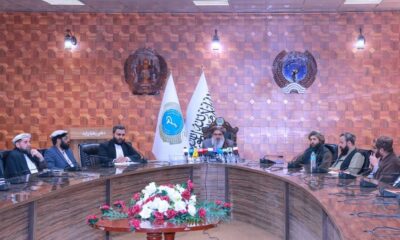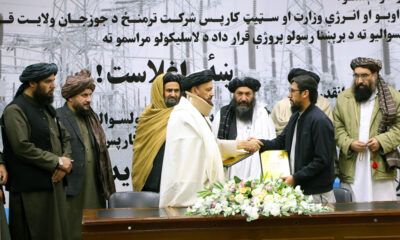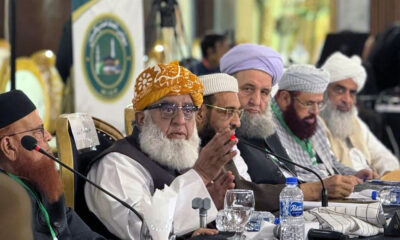Latest News
IEA calls Palestinian resistance ‘legitimate right to achieve freedom’
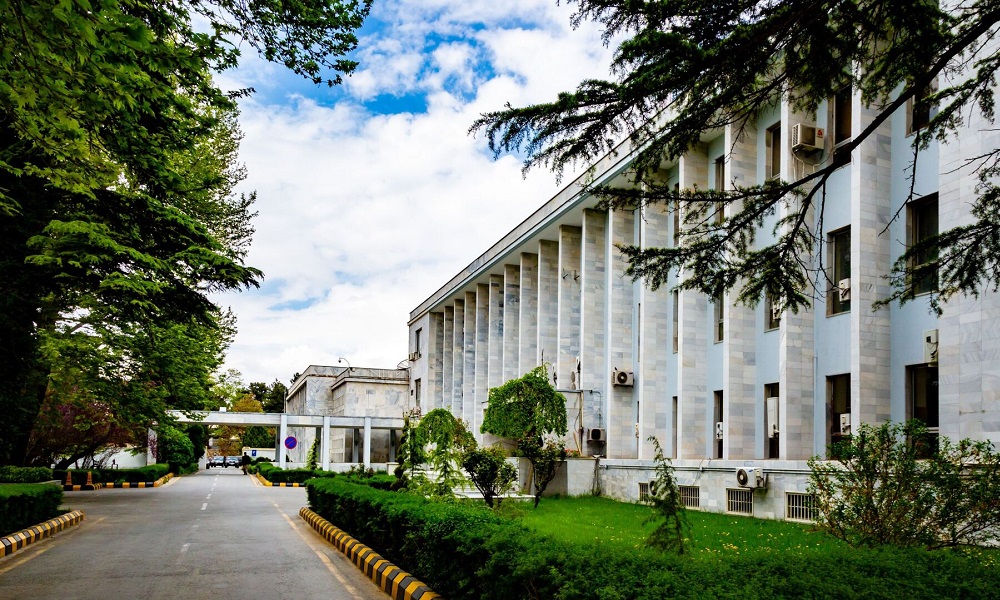
The Islamic Emirate’s Foreign Ministry called the Palestinian resistance “the legitimate right of the Palestinians to achieve freedom”.
This was in reference to Saturday’s developments between Palestine and Israel.
Palestine’s Hamas group took Israel by surprise on Saturday with the biggest attack for decades, a sudden assault by gunmen who crossed into Israeli villages, killed dozens of people and brought hostages back into the Gaza Strip.
Hamas also fired off an estimated 2,500 rockets at Israel, which was met with massive air strikes deep inside the coastal enclave by Israel.
“Our enemy will pay a price the type of which it has never known,” Prime Minister Benjamin Netanyahu said. “We are in a war and we will win it”.
Hamas leader Ismail Haniyeh said the assault that had begun in Gaza would spread to the West Bank and Jerusalem.
“This was the morning of defeat and humiliation upon our enemy, its soldiers and its settlers,” he said. “What happened reveals the greatness of our preparation. What happened today reveals the weakness of the enemy.”
The IEA meanwhile said on X, formerly Twitter, that the Islamic Emirate supports the Palestinian people’s legitimate, historical, and legal right to have an independent state in the land of the Palestinians.
The IEA’s foreign ministry asked Islamic countries, the Organization of Islamic Cooperation (OIC), and the international community, especially influential countries in the region, to stop the violence of the Israeli occupying forces against the innocent people of Palestine.
Hundreds of people were reportedly killed in Saturday’s incursion.
Reuters reports that in southern Israel near Gaza, bodies of Israeli civilians lay strewn across a highway in Sderot, surrounded by broken glass. A woman and a man were sprawled out dead across the front seats of a car. A military vehicle drove past the bodies of another woman and a man in a pool of blood behind another car.
Israel’s N12 News reported that at least 100 Israelis were killed. Israeli security forces said there were 21 active scenes of gun battles with infiltrators, and its navy had killed dozens more Palestinians attempting to infiltrate by sea.
In Gaza, black smoke and orange flames billowed into the evening sky from a high rise tower hit by an Israeli retaliatory strike. Crowds of mourners carried the bodies of freshly killed militants through the streets, wrapped in green Hamas flags.
Gaza health officials said at least 198 Palestinians had been killed and more than 1,600 had been wounded, carried into crumbling and overcrowded hospitals with severe shortages of medical supplies and equipment.
Hamas deputy chief Saleh al-Arouri told Al Jazeera that the group was holding a big number of Israeli captives, including senior officials. He said Hamas had enough captives to make Israel free all Palestinians in its jails.
The Israeli military confirmed Israelis were being held captive in Gaza and soldiers and officers had been killed. A military spokesman said Israel could mobilize up to hundreds of thousands of reservists and was also prepared for war on its northern front against Lebanon’s Hezbollah group.
Hamas, which advocates Israel’s destruction, said the attack was driven by what it said were Israel’s escalated attacks on Palestinians in the West Bank, Jerusalem and against Palestinians in Israeli prisons.
“This is the day of the greatest battle to end the last occupation on earth,” Hamas military commander Mohammad Deif said, announcing the start of the operation in a broadcast on Hamas media and calling on Palestinians everywhere to fight.
Hamas, which seized control of Gaza in 2007, has since fought four wars against Israel. But the scenes of violence inside Israel itself were unlike anything seen since the suicide bombings of the Palestinian Intafada uprising two decades ago.
That the attack came as a surprise to Israel’s security forces makes it one of the worst intelligence failures in the country’s history, a shock in a nation proud of its intensive infiltration and monitoring of militant groups.
Latest News
Power project signed to electrify 47,000 homes in Jawzjan
According to MoEW, the project will be funded through revenues from Afghanistan’s mines and will provide electricity to around 47,000 families.
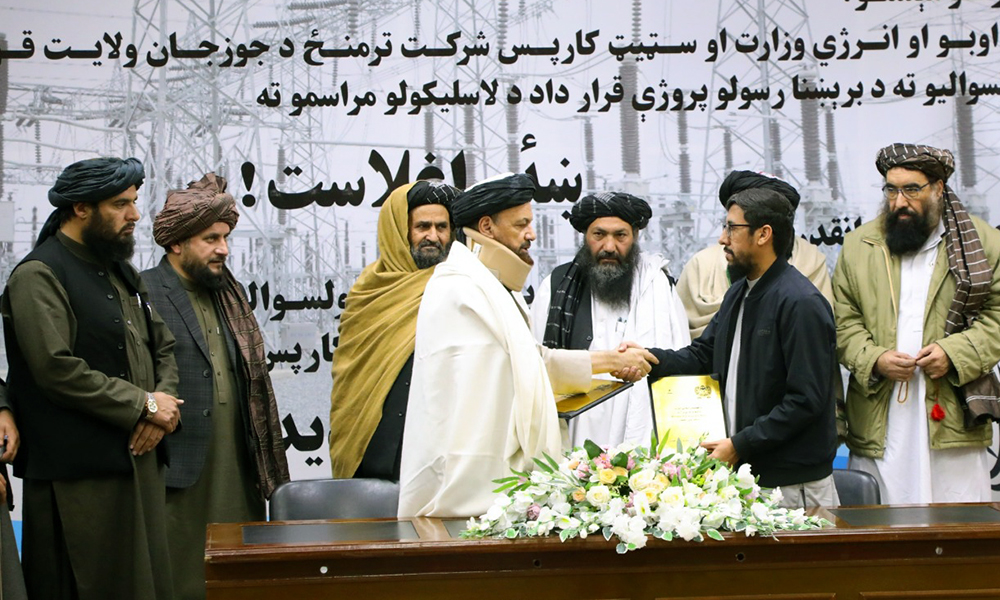
The Ministry of Energy and Water (MoEW) on Tuesday signed a major power supply project worth over 1.8 billion afghanis with domestic firm State Corps to provide electricity to Qush Tepa and Darzab districts in northern Jawzjan province.
The contract signing ceremony, held at the Government Information and Media Centre, was attended by Deputy Prime Minister for Economic Affairs Mullah Abdul Ghani Baradar and senior government officials.
Mawlawi Abdul Rahman Rahmani, Director General of Renewable Energy at MoEW, said the $28.4 million project (equivalent to 1.886 billion afghanis) aims to ensure nearly all households in Qush Tepa and Darzab have access to electricity.
He explained that the project involves constructing an 85.4-kilometre transmission line from Shiberghan, the provincial capital, building substations, and establishing electricity distribution networks in both districts.
Alauddin Salim, representing State Corps, described the initiative as “crucial” and said it is expected to be completed within three years. He highlighted that domestic firms, like State Corps, are more committed than foreign companies to project delivery.
According to MoEW, the project will be funded through revenues from Afghanistan’s mines and will provide electricity to around 47,000 families. The ministry urged the company to ensure timely completion with high quality standards.
Latest News
Pakistani cleric condemns lifetime immunity for Army Chief as un-Islamic
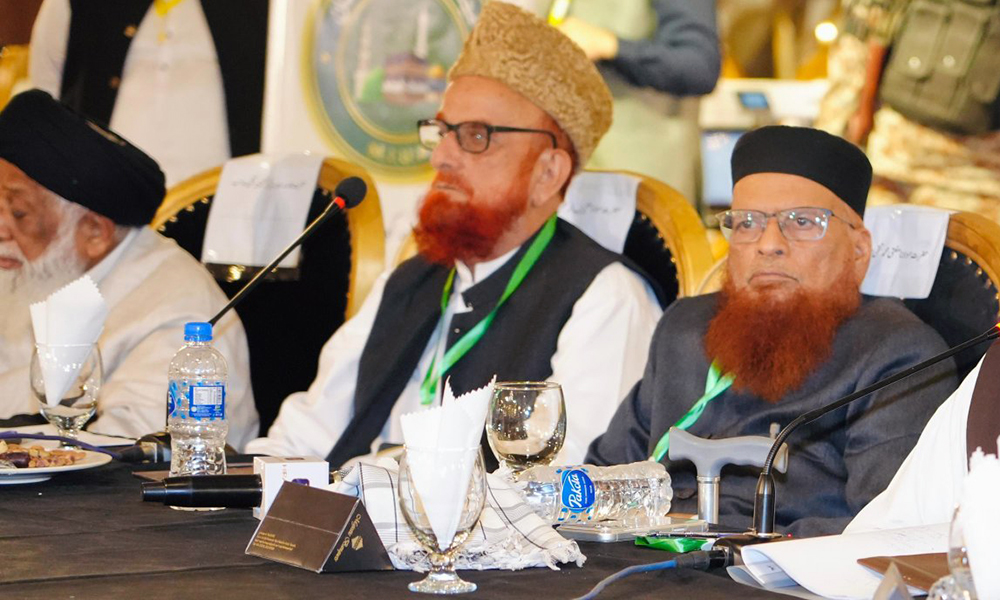
Prominent Pakistani religious scholar Mufti Taqi Usmani has strongly criticised moves to grant lifetime immunity to Pakistan’s Army Chief, General Asim Munir, describing such protection from judicial accountability as contrary to Islamic principles.
Speaking at a public gathering on Monday, Mufti Usmani said that Islam does not place any individual above the law, stressing that rulers, military leaders and ordinary citizens are equally accountable for their actions. He emphasised that justice and accountability form the foundation of an Islamic system, and that permanent immunity for powerful figures violates the spirit of Sharia.
The cleric warned that creating legal distinctions between state officials and the general public undermines public trust and fosters injustice within society. He urged state institutions to adhere to Islamic values when making political and military decisions, particularly those affecting governance and accountability.
Mufti Usmani’s remarks come amid growing debate in Pakistan over the role of the military in state affairs and the expanding authority granted to senior army officials. The issue has drawn heightened public and political attention in recent weeks, with critics arguing that excessive protections weaken democratic institutions and the rule of law.
Latest News
Fazal Ur Rehman says Pakistan’s ‘attacks’ on Afghanistan are unjustifiable
“If you justify attacks on Kabul by claiming your enemies are present there, then why is your response different when India targets its enemies inside Pakistan?” he said.
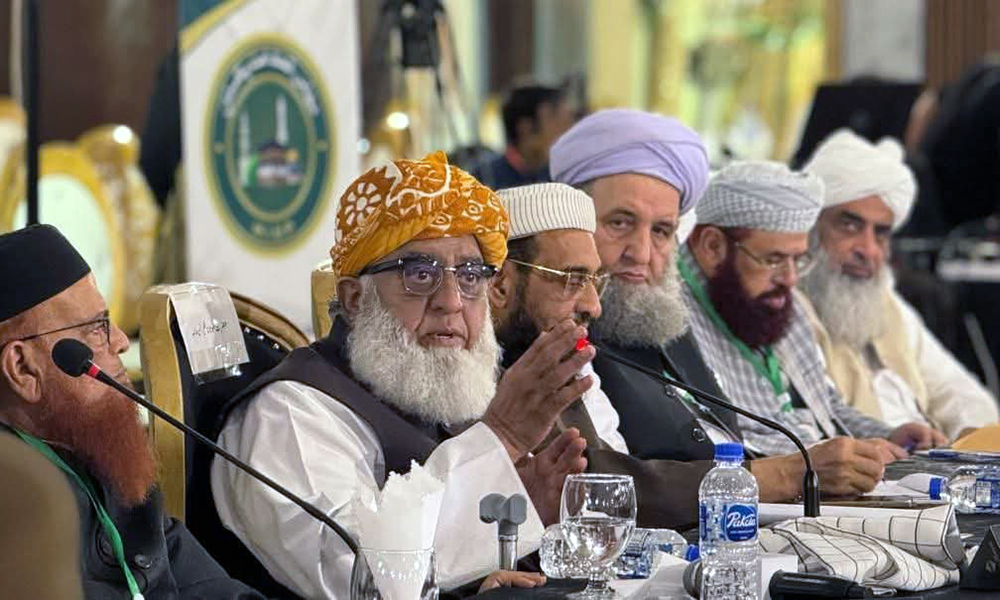
Senior Pakistani religious leader and politician Maulana Fazal Ur Rehman has condemned attacks on Afghanistan carried out under the pretext of targeting militant groups, calling such actions unjustifiable and counterproductive.
He urged both Kabul and Islamabad to resolve their disputes through dialogue and political engagement rather than military means.
Speaking at a gathering of Pakistani religious scholars titled “Pakistani Ummah Unity,” Fazal Ur Rehman, who heads the Jamiat Ulema-e-Islam (JUI-F) party, criticized Pakistan’s security approach toward Afghanistan.
Addressing Pakistan’s military leadership, he questioned the rationale behind cross-border actions, asking why attacks are justified against Afghanistan when similar logic is rejected in response to Indian strikes inside Pakistan.
“If you justify attacks on Kabul by claiming your enemies are present there, then why is your response different when India targets its enemies inside Pakistan?” he said.
Fazal Ur Rehman warned that continued tensions between Afghanistan and Pakistan serve the interests of neither country and risk further destabilizing the region.
He stressed that dialogue, mutual respect, and political understanding remain the only sustainable solutions to long-standing disputes between the two neighbors.
-

 Latest News2 days ago
Latest News2 days agoAfghanistan signs 30-year deal for marble mining in Daikundi
-

 Latest News4 days ago
Latest News4 days agoAfghan border forces prevent illegal entry of hundreds into Iran
-

 Latest News3 days ago
Latest News3 days agoPakistan summons Afghan diplomat over deadly attack in North Waziristan
-

 Latest News3 days ago
Latest News3 days agoAfghan health minister calls for medical cooperation between Kabul and New Delhi
-

 Latest News4 days ago
Latest News4 days agoJapan allocates nearly $20 million in humanitarian aid for Afghanistan
-

 Latest News3 days ago
Latest News3 days agoKarzai urges reopening of girls’ schools and universities for Afghanistan’s bright future
-
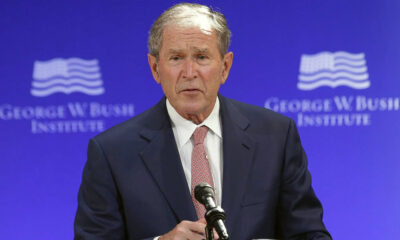
 Latest News2 days ago
Latest News2 days agoBush Institute criticizes Trump administration’s Afghan immigration freeze
-

 Health4 days ago
Health4 days agoIndia issues over 200 medical visas to Afghans in last four months




